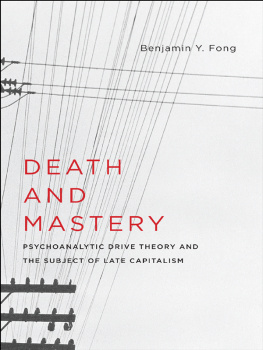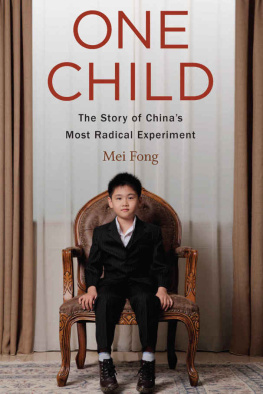Ho Sok Fong - Lake Like a Mirror
Here you can read online Ho Sok Fong - Lake Like a Mirror full text of the book (entire story) in english for free. Download pdf and epub, get meaning, cover and reviews about this ebook. year: 2020, publisher: Two Lines Press, genre: Art. Description of the work, (preface) as well as reviews are available. Best literature library LitArk.com created for fans of good reading and offers a wide selection of genres:
Romance novel
Science fiction
Adventure
Detective
Science
History
Home and family
Prose
Art
Politics
Computer
Non-fiction
Religion
Business
Children
Humor
Choose a favorite category and find really read worthwhile books. Enjoy immersion in the world of imagination, feel the emotions of the characters or learn something new for yourself, make an fascinating discovery.
- Book:Lake Like a Mirror
- Author:
- Publisher:Two Lines Press
- Genre:
- Year:2020
- Rating:3 / 5
- Favourites:Add to favourites
- Your mark:
- 60
- 1
- 2
- 3
- 4
- 5
Lake Like a Mirror: summary, description and annotation
We offer to read an annotation, description, summary or preface (depends on what the author of the book "Lake Like a Mirror" wrote himself). If you haven't found the necessary information about the book — write in the comments, we will try to find it.
Lake Like a Mirror — read online for free the complete book (whole text) full work
Below is the text of the book, divided by pages. System saving the place of the last page read, allows you to conveniently read the book "Lake Like a Mirror" online for free, without having to search again every time where you left off. Put a bookmark, and you can go to the page where you finished reading at any time.
Font size:
Interval:
Bookmark:

Lake Like a Mirror
Lake Like a Mirror
Ho Sok Fong
Translated from Chinese by Natascha Bruce

Copyright 2014 by Ho Sok Fong
English translation 2020 by Natascha Bruce
Originally published in Chinese as (h min r jng) in 2014
by (Aquarius Publishing Co. Ltd), Taiwan.
First published in Great Britain by Granta Books, 2019.
The moral right of the author and translator have been asserted.
Two Lines Press
582 Market Street, Suite 700, San Francisco, CA 94104
www.twolinespress.com
ISBN 978-1-931883-98-6
Library of Congress Cataloging-in-Publication Data
Names: Ho Sok Fong, author. | Bruce, Natascha, translator.
Title: Lake Like a Mirror / Ho Sok Fong; translated from the Chinese by
Natascha Bruce.
Description: San Francisco: Two Lines Press, 2020.
Identifiers: LCCN 2019034371 (print) | LCCN 2019034372 (ebook) | ISBN
9781931883986 (paperback) | ISBN 9781931883993 (ebook)
Subjects: LCSH: Ho Sok Fong--Translations into English.
Classification: LCC PL2937.5.O64 A2 2020 (print) | LCC PL2937.5.O64
(ebook) | DDC 895.13/6--dc23
LC record available at https://lccn.loc.gov/2019034371
LC ebook record available at https://lccn.loc.gov/2019034372
Cover design by Gabriele Wilson
Cover photo Cig Harvey
Design by Sloane | Samuel
Printed in the United States of America
1 3 5 7 9 10 8 6 4 2
This book is supported in part by an award from the National
Endowment for the Arts.

Contents
The Wall
WHEN THE DEVELOPERS said they were building a wall to keep out the sound, everybody thought it was a good idea. For the past few years, the expressway had been expanding, coming closer and closer to our houses. It used to be a full sixty meters away, but now had come so close we were practically run over every time we opened our back doors.
One morning, a seven-year-old girl really was run over outside her back door. Late that night, the developers started building a wall along the side of the road.
Theyre laying bricks straight onto the ground, said the aunty next door. From her upstairs window, she watched the workmen spread a layer of cement, then position a line of bricks, then smear on more cement.
Its got no foundations, she said to her husband, when she came back downstairs. He was watching a football game on television, and when they scored he clapped and cheered with the South American sportscaster, so didnt hear her.
His wife wasnt surprised. She went back to watching the workmen build the wall. She thought they looked thin, as though they were too feeble for a job like that. But their wall looked very thick, thick enough to hide one of them in it. It grew higher and higher, until it blocked her view. When it was over one story high, she went to bed.
The next morning, all the tenants in our row woke to find the wall was finished. It cut off the sunlight, making our back gardens and kitchens dark. But everybody agreed that sunlight wasnt much of a price to pay, considering the seven-year-old girl whod been killed by a car. The only thing was, the wall blocked our back doors too, and now they opened only a little wider than the width of a foot. Wide enough for a cat, or a small dog, but too much of a squeeze for a human.
The next-door aunty wasnt happy. Wasnt this the same as having no back door at all? No back door meant no way out. Her husband agreed. Its like having a mouth but no asshole, is what he said.
But, gradually, they got used to it. Theres nothing a person cant get used to. It wasnt too much of a hardship, anyway, not compared to what that girls mother was going through. Two days after the incident, the aunty and her husband saw a tiny coffin being carried out through the other familys gate. A few days later, the mother lit a fire in a big metal trashcan by her front door and burned her daughters clothes and schoolbag. The thick white smoke reeked of melting plastic and choked up the whole street.
The aunty couldnt remember if her husband had ever left the house. He sat glued to the football on the television. The light was gone from their windows, but they carried on as best they could.
The aunty had no kids to take care of and spent most of her time in the kitchen. If she closed the kitchen door, she couldnt even hear the television. Before the wall, the kitchen had been filled with the roar of cars hurtling along the expressway. After the wall, the noise was muffled, like a person humming deep within their chest. After a few days, she was used to it, and didnt mind much one way or the other.
She did do things a little differently after the wall. It blocked the sunlight, making her eyes too tired to read the newspaper. Instead, she turned her attention to her tiny garden, about the size of a toilet stall, just next to the kitchen. In the first week she planted cacti, and later added dumb canes, bush lilies, hydrangeas, and gerbera daisies, filling the little space to bursting. Youd have been impressed, if youd seen itbig fat leaves springing from such a tiny patch of soil, spreading out so that there was almost nowhere left to stand. And it seemed to be because of the wall: the gloom meant the soil stayed moist and the plants flourished. In addition to the plants in her garden, the aunty kept a bowl of goldfish in the kitchen.
Her husband hardly ever came into the kitchen, so he didnt know she also kept a fluffy tabby cat. Hed had a lung infection a while before, and had been wary of dog and cat hair ever since. The cat had sneaked in the day after the wall went up. The aunty had been trying to push open the back door, and it had squeezed through that sliver of a gap. She guessed the cat belonged to one of the houses farther down the row, and that, because her slightly opened door had barred its way, it had decided that it might as well come in. It leaped boldly onto a chair, then strolled right into her little garden, where it relieved itself. After that, she couldnt bring herself to put it back outside again. She hugged it close, feeling its weight against her, like the weight of the loneliness in the pit of her stomach.
Because of the goldfish, she had to keep the cat shut away in the garden. She couldnt let it inside, but neither could she let it leave. It often fell asleep out there. When it woke up it would prowl around in circles, and when it was hungry it would rub against the door, meowing. She was careful never to feed it too much: if it was hungry, it needed her. She felt there was an invisible rope between them, and when the cat was hungry, the rope pulled taut. At first, shed thought about finding a real rope to tie the cat up with, but then shed decided that as long as she shut the door tightly things would be fine as they were.
One morning, while she was out shopping, her husband went into the kitchen. He opened all three doorsto the back alley, to the little garden, and to the rest of the houseand then went back to the living room, where he sat contentedly reading the paper. When his wife came home, she found the goldfish bowl smashed to pieces and water all over the floor. Her husband was just sitting there, without a care in the world.
What happened to the fishbowl?
Her husband glanced up, but said nothing.
And the cat?
He shrugged. She glared at his expression, hating the way he acted as though this had nothing to do with him. A chill swept through her chest; bit by bit, she felt her heart turn to ice. And so, when she spoke again, she was even frostier than him: Cat got your tongue?
Next pageFont size:
Interval:
Bookmark:
Similar books «Lake Like a Mirror»
Look at similar books to Lake Like a Mirror. We have selected literature similar in name and meaning in the hope of providing readers with more options to find new, interesting, not yet read works.
Discussion, reviews of the book Lake Like a Mirror and just readers' own opinions. Leave your comments, write what you think about the work, its meaning or the main characters. Specify what exactly you liked and what you didn't like, and why you think so.









